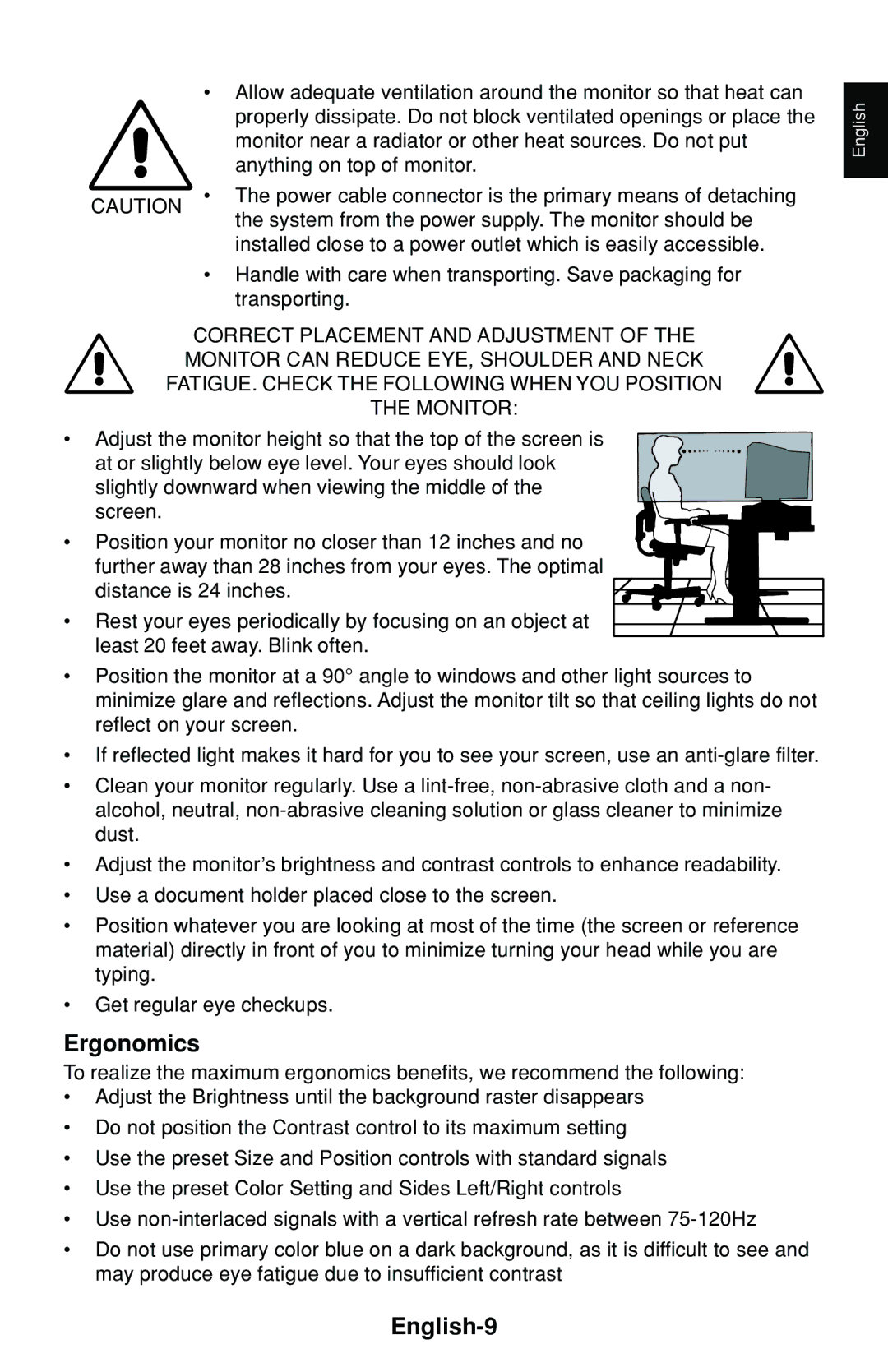
•Allow adequate ventilation around the monitor so that heat can
properly dissipate. Do not block ventilated openings or place the monitor near a radiator or other heat sources. Do not put anything on top of monitor.
• The power cable connector is the primary means of detaching
CAUTION
the system from the power supply. The monitor should be installed close to a power outlet which is easily accessible.
•Handle with care when transporting. Save packaging for transporting.
CORRECT PLACEMENT AND ADJUSTMENT OF THE
MONITOR CAN REDUCE EYE, SHOULDER AND NECK
FATIGUE. CHECK THE FOLLOWING WHEN YOU POSITION
THE MONITOR:
•Adjust the monitor height so that the top of the screen is at or slightly below eye level. Your eyes should look
slightly downward when viewing the middle of the screen.
• Position your monitor no closer than 12 inches and no further away than 28 inches from your eyes. The optimal distance is 24 inches.
• Rest your eyes periodically by focusing on an object at least 20 feet away. Blink often.
•Position the monitor at a 90° angle to windows and other light sources to minimize glare and reflections. Adjust the monitor tilt so that ceiling lights do not reflect on your screen.
•If reflected light makes it hard for you to see your screen, use an
•Clean your monitor regularly. Use a
•Adjust the monitor’s brightness and contrast controls to enhance readability.
•Use a document holder placed close to the screen.
•Position whatever you are looking at most of the time (the screen or reference material) directly in front of you to minimize turning your head while you are typing.
•Get regular eye checkups.
Ergonomics
To realize the maximum ergonomics benefits, we recommend the following:
•Adjust the Brightness until the background raster disappears
•Do not position the Contrast control to its maximum setting
•Use the preset Size and Position controls with standard signals
•Use the preset Color Setting and Sides Left/Right controls
•Use
•Do not use primary color blue on a dark background, as it is difficult to see and may produce eye fatigue due to insufficient contrast
English
